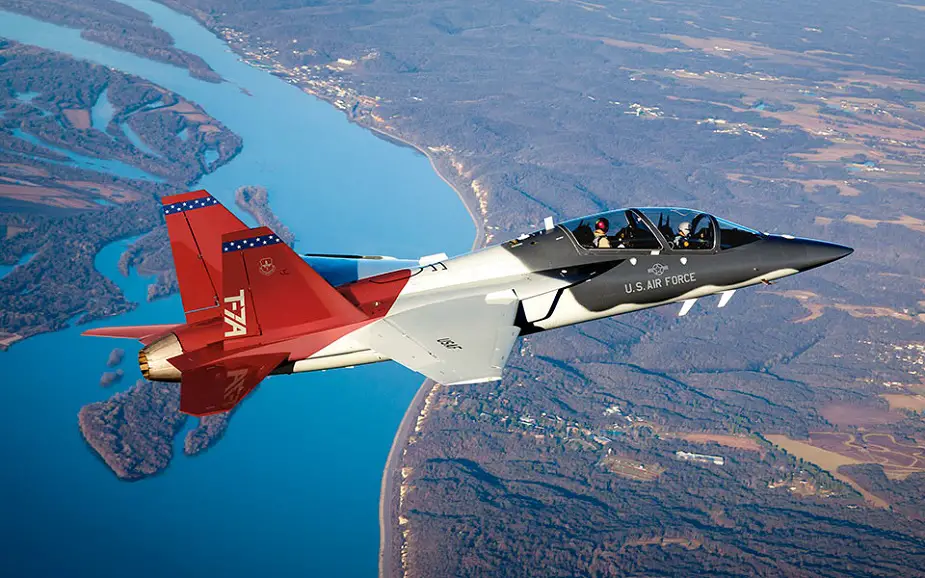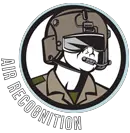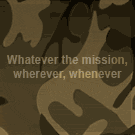The US Air Force is a step closer to finalizing the design for its 4th and 5th Generation Advanced Pilot Trainer, the T-7A Red Hawk.
Follow Air Recognition on Google News at this link
 The T-7A Red Hawk is the new advanced pilot training system for the US Air Force that will train the next generation of pilots for decades to come (Picture source: Boeing)
The T-7A Red Hawk is the new advanced pilot training system for the US Air Force that will train the next generation of pilots for decades to come (Picture source: Boeing)
Boeing and the U.S. Air Force recently conducted both the Aircraft Critical Design Review (CDR) and overall System CDR during a 3-day summit culminating 18 months of development work on the program.
“This is an important step forward in the life of this program,” said Shanika Sims, Air Vehicle Branch Chief. “This design review further solidifies the aircraft and subsystem designs, bringing the T-7A Red Hawk closer to production.”
The CDR analyzed the ability of the T-7A subsystems and overall platform to deliver the capabilities required to train 4th and 5th generation fighter pilots. Specifically, these reviews looked carefully at subsystems such as the new escape system, engine/propulsion integration, and external pylons. Systems engineering processes were used to ensure that the platform design can effectively and successfully deliver the advanced level of training required by new pilots headed for fighters like the F-22 and F-35.
“The combined Government and Boeing team continues to leverage outside-the-box thinking, process tailoring, and are ‘breaking the norms’ by utilizing advanced engineering digital design practices to design, test, and produce aircraft, enabling faster delivery of a high-quality product to the warfighter,” Sims said.
Many such design reviews are conducted face-to-face, but COVID-19 required personnel from around the country to adapt and collaborate remotely. So these design reviews were conducted virtually, between the Air Force program office out of Wright-Patterson AFB and the Boeing T-7A Red Hawk program office in St. Louis, Missouri. Air Education and Training Command, at Randolph AFB, Texas and the Air Force Test Center at Edwards AFB, California also participated.
The T-7A program kicked off in September 2018 when the Air Force awarded Boeing a $9.2 billion contract to replace Air Education and Training Command’s aging T-38C fleet with 351 T-7 training aircraft, along with 46 simulators and associated ground equipment. The capabilities of the T-7 will provide student pilots with skills necessary to more effectively transition to 4th & 5th generation fighter/bomber aircraft.
















